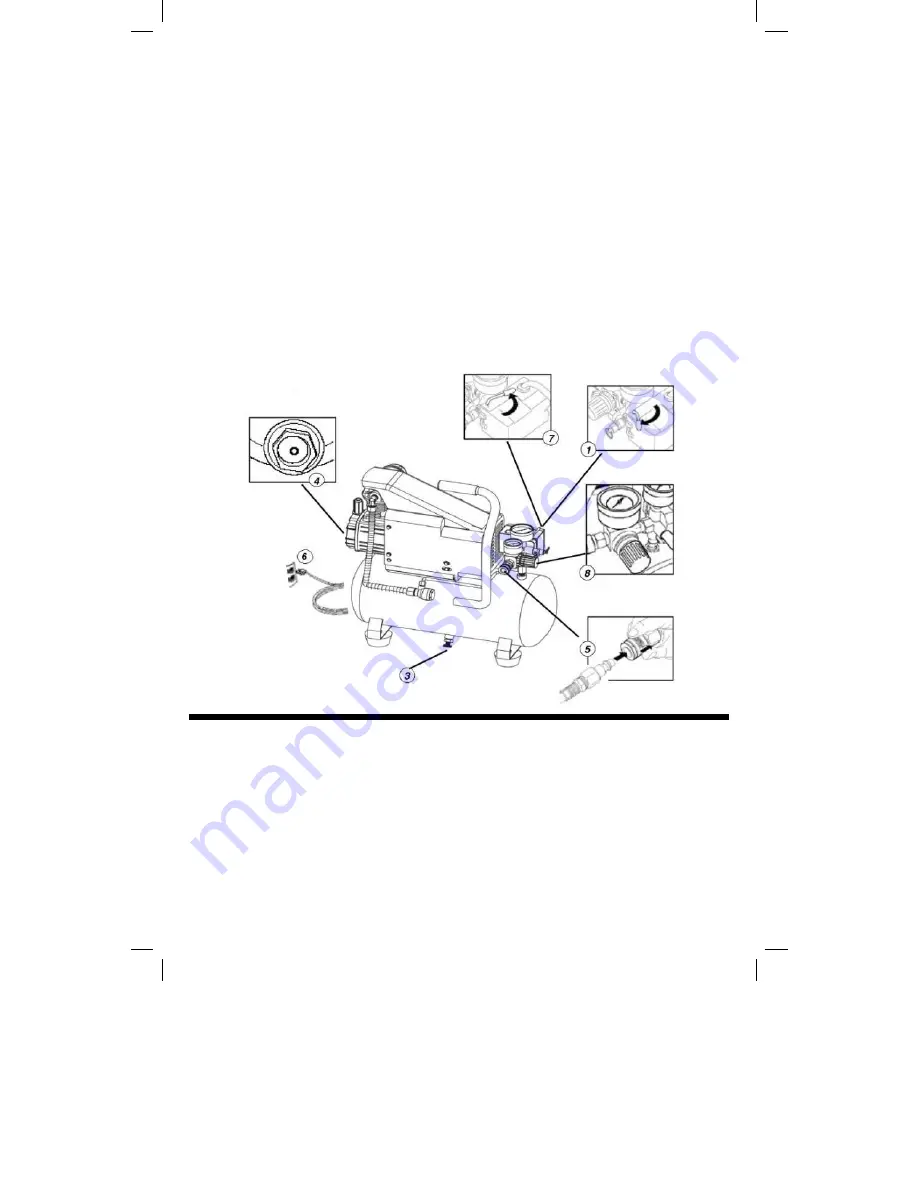
6
Operating Procedures
Daily Start-Up Procedures
1. Set the Auto-On/Off lever to the Off position.
2. Inspect the air compressor, air hose, and any
accessories/tools being used for damage or
obstruction. If any of these mentioned items
are in need of repair/replacement, contact
your local authorized service dealer before
use.
3. Close the drain valve.
4. Check the oil level of the pump.
5. Connect the air hose to the quick connect
socket on the regulator assembly by inserting
the quick connect plug on the air hose into
the quick connect socket. The quick connect
socket collar will snap forward and lock
the plug into place providing an airtight seal
between the socket and plug. To release the
air hose, push the collar back on the quick
connect socket.
6. Plug the power cord into the proper
receptacle.
7. Turn the Auto-On/Off lever to the On-Auto
position and the compressor will start and
build air pressure in the tank to cut-out
pressure and then shut off automatically.
8. Adjust the regulator to a PSI setting that is
needed for your application and be sure it is
within the safety standards required to
perform the task. If using a pneumatic tool,
the manufacturer should have
recommendations in the manual for that
particular tool on operating PSI settings.
9. The air compressor is now ready for use.
Daily Shut-Down Procedures
1. Set the Auto-On/Off lever to the Off position.
2. Unplug the power cord from the receptacle.
3. Set the outlet pressure to zero on the
regulator.
4. Remove any air tools or accessories. When
draining the tank, always use ear and eye
protection. Drain the tank in a suitable
location; condensation will be present in
most cases of draining.
5. Open the drain valve allowing air to bleed
from the tank. After all of the air has bled from
the tank, close the drain valve to prevent
debris buildup in the valve.
CAUTION!
When draining the tank, always use ear and eye protection.
Drain the tank in a suitable location; condensation will be
present in most cases
of draining.
WARNING!
Water that remains in the tank during storage
will corrode and weaken the air tank which could
cause the tank to rupture. To avoid serious injury,
be sure to drain the tank after each use or daily.
































